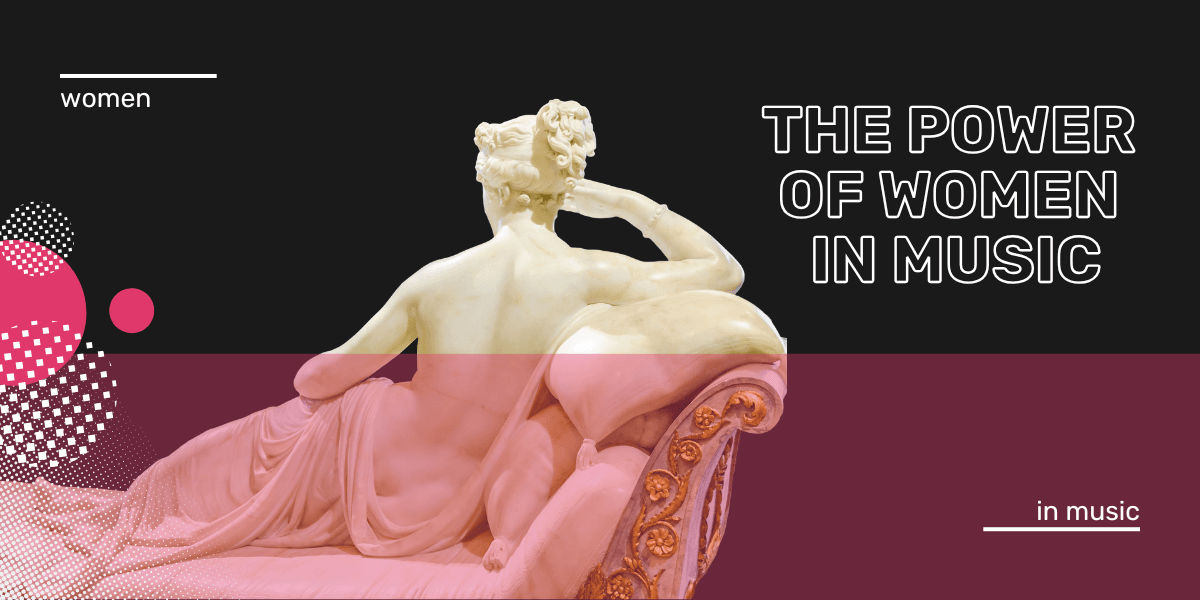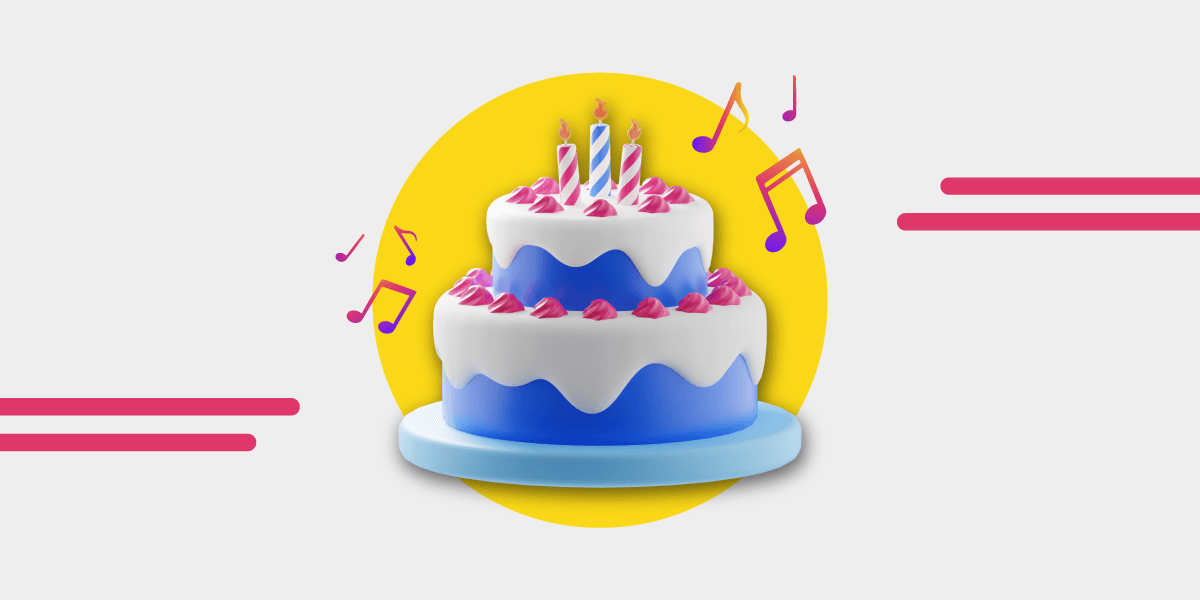Music news, tips & stories
Stay updated with the latest music streaming insights, playlist management tips, and industry news.
Women in Music
May 15, 2025

March is International Women's History Month, making it the perfect time to look at how women have been impacted and are impacted by music.
It's essential to start with some facts and figures about women in the music industry before we dive into celebrating and talking about the trailblazers across all areas of the industry.

Photo by Rosa Rafael on Unsplash
Facts about women in music
- In 2022, only 30% of the artists in the Billboard 100 Year-End were women
- 65% of underrepresented artists were underrepresented women in 2022, an increase of 10% since 2021.
- 14% of songwriters in 2021 and 2022 were women.
- Shockingly, over the span of 11 years, over 50% of songs did not credit female songwriters, although 43% of the songs written did have women songwriters. In contrast, only 1% didn't credit male songwriters.
- In over 800 songs in an evaluation, only 3.4% of producers were women in 2022.
- The 2022 Billboard Hot 100 Year-End Chart featured just one artist who worked with a woman producer. Nicki Minaj and Malibu Barbie.
- No pledge taker worked with a woman sound engineer in the same year-end chart in 2022
- The Songwriting Hall of Fame had 459 artists inducted, with only 35 of those being women (as of 2023).
Source: For women in music, climbing the charts to equality is a slow process.
Spotify was the DSP who provided data for the research paper associated with these figures. Inclusion in the Recording Studio? Gender & Race/Ethnicity of Artists, Songwriters & Producers across 1,100 Popular Songs from 2012 to 2022.
And yet, despite those figures, women continue to make waves in music, including in sound engineering, songwriting, DJs, musicians, and more.
So, let's examine the women in the music industry who, despite being 'invisible,' are making an impact.

Photo by Kobe Subramaniam on Unsplash
The Trailblazers in Women's Music History
Before Beyonce, before Taylor Swift, and long before Lizzo, there were women in music who were making their mark and creating space for the artists we know today.
Sister Rosetta Tharpe
Sister Rosetta Tharpe grew up with music surrounding her, and she was said to be playing the guitar in the Pentecostal churches from age 4. Gospel, New Orleans jazz, and Delta Blues were her style, and this led to the release of one of her best-known and most loved songs, "Strange Things Happening."
We know that gospel laid the foundations for almost all the music we listen to now, and this track was the first Gospel track to get into the R&B top 10 charts.
Lea Salonga
At just 20 years old, Lea Salonga won a Tony award for her performance as Kim in Miss Saigon. Not only was she the first Asian actress to win a Tony, but her career spanned another 40 years.
Perhaps you are thinking you haven't heard of her? Well, the chances are you have listened to her more than once. She is the voice behind singing Disney princesses Jasmine and Fa Mulan.
Missy Elliott
Missy Elliot created a path for others to follow, and as such, she is still quoted in forums, songs, and as an inspiration for women rappers today.
For those who remember One in a Million by Aaliyah, that was penned by Missy. Her visual work, combined with her unique style and sleek flow, made a significant mark on the music world—and she is still creating now.
Hildegard of Bingen
A name you likely haven't heard, but Hildegard is one of the first known women composers in Western music. A theologian, mystic, scientist, and composer - was also a nun. She penned countless songs for the nuns to sing.
Eight hundred years later, interest was taken in her works, and in 1979, the first performance of four of her songs came to life.
Janis Joplin
The inspiration behind Florence Welch, Stevie Nicks, and Pink - as well as many more. Although she died at just 27 years old, her stage presence and deeply emotional lyrics have resonated through the music industry and remain vital today.
She was called the first Queen of Rock 'n' Roll at the height of her short career.
Michele Anthony
Michele Anthony, one of the leading women executives, called out injustices within the Grammys for a lack of transparency and inclusion. Currently, she is the Exec VP of UMG (who has been forging relationships with DSPs for fairer pay).
She founded 7H Entertainment, whose clients included Black Sabbath, Ozzy Osbourne, and Pearl Jam. In 2018, she was the highest ranking women record exe at the UMG.
Lauryn Hill
The Miseducation of Lauryn Hill was the album that made Lauryn the first woman to win five Grammys in a single award ceremony. That ceremony was in 1999, and it was the 41st awards night. Lauryn has faced inhospitality and hostility in the industry since the start.
Her lyrics were then and still are radical, and she is quoted as not ever wanting to be that manufactured and fabricated cover girl in the music industry.
Lauryn Hill holds firm to getting her worth; she refuses interviews that aren't paid - because the music industry and media are too quick to demand Black women to appear for nothing. Her album is still ranking high in the greatest albums of all time and indeed by women. Showing her cultural impact is profound.
Taylor Swift
In some respects, it follows Lauryn Hill's footsteps. Taylor Swift is a global pop icon who has been outspoken about women's rights.
She also went to war over her master's rights and started bigger conversations about artists' rights - specifically, not owning their own work. To push back against it, she rerecorded her earlier works and released them so that her career was on her own terms.
Ella Fitzgerald
The First Lady of Song has scored 13 Grammys, which sounds good, but she has over 200 albums in her name. Highlighting that even with a household name and songs sampled, quoted, and played repeatedly, it isn't enough for the recognition deserved.
And on that note, it is important to note that not only was Ella the first Black woman to win a Grammy, but she was constantly fighting against discrimination in the Jim Crow era.
Countless more
There are more, of course, and it would be remiss not to say their names here: Aretha Franklin - The Queen of Soul who was double marginalized; Diana Ross, who broke out from the conventional 'girl group' and forged a new path; Dolly Parton, a leader in a male-dominated genre and protecting her rights (refusing Elvis covering her music because of publishing rights); Joni Mitchell with her unashamed sharing of deep emotions and music experimentation; Patsy Cline the first women to be inducted into the Country Music Hall of Fame in 1973 - of course, after she died.
Not to mention classical heroes like Chen Yi, the first woman to receive a master's degree in composition.
It's almost tragic not to make the list longer, but there is a current and future to look to where artists like Lady Gaga, Ariana Grande, Beyoncé, and Kesha are keeping it moving.

Photo by SoundGirls Women in Audio on Unsplash
Obstacles for women in music
In the early days, to be a female musician, you needed to either be born into it, a nun, or something that would be 'pleasing.' Reputation meant everything; women wouldn't want to risk being known as 'bad' or 'rebellious.' Today's music would've been scandalous.
Musical education was never considered a place for women. However, they should know how to play an instrument and sing when requested, only for entertainment purposes at parties—never as professionals. It wasn't until the nineteenth century that women had the space to be professionals and enroll in official musical education.
Societal pressures and roles dictated that religion and family took precedence, and most often, women who were successful and gained notoriety in music were from well-off families who had nannies and people to take care of the house.
Getting to where we are today has taken hundreds of years, and the women mentioned above are a fraction of those who made it happen.
What about women music listeners?
In 2022, IFPI released a report that provided a global snapshot of how people interacted with music.
One of the most interesting discoveries was that 69% of music listeners believed that music was important to their mental health. The highest listener in the mental health category was Paid Streaming Users, which makes sense. The second, however, at a huge 72%, was women.
It is important to take a look at purchasing power because it plays a significant role in the success of streaming services and merchandise sales, in which artists become 'big,' and the general music economy.
In March 2020, Nielsen reported that by 2028, women will own 78% of the discretionary spending - which means they are the greatest influencers for things like streaming subscriptions. Brands are beginning to wise up to this and have started to focus on new ways to engage with women.
- 65% of Spotify's user base are women in the USA – Source.
- 36.9% of TIDAL's user base are women – Source
- 42.3% of Deezer user base are women – Source
- 56% of Apple Music users are women – Source
Of course, music streaming is part of the wider female influence in entertainment economics. And contemporary female artists, building on those before them, are the reason why.
StubHub reported that Taylor Swift and Beyonce tour tickets represent 66% of the top 10 artists on tours. Not only do they embrace the artists, but they also purchase CDs and merchandise, stream the music, introduce others to it, and adopt some of the lyrical content.
Consider this: ahead of Taylor Swift and Beyonce concerts, the sales of cowboy hats, fringed clothing, beads, and jewelry go up by up to 500% in Michales craft stores alone – source. Now that is spending power.

Photo by kevin laminto on Unsplash
The Female artists leading the way
Cardi B, Megan Thee Stallion, SZA, Miley Cyrus, Beyonce, and Taylor Swift are attracting millions of female listeners, who are turning to streaming platforms to hear them.
In 2023, according to data released from Luminate, the on-demand audio streaming of female artists in the US was up by +4.2 share points. In fact, women held three of the top 5 most streamed songs - SZA holding 2nd and 5th, with Miley Cyrus holding 4th position.
In the UK, music sales are up by a tenth, with an increase in vinyl. In 2023, women spent 31 weeks at the top of the UK singles charts—artists like Ellie Goulding, PinkPanthress, and Dua Lipa. It also meant that four of the biggest tracks of the year in the UK and seven of the top 10 were women – source.
This article from the Guardian sums it up pretty well: "Number of US female musicians reaches decade high, but is still far from parity."
How can you support women in music?
For the change to continue, as Stacy L Smith states in the above article. It will take the work of various groups to support women in the industry, activities, and advocacy. “There is still too little recognition for women producers and songwriters in those categories, and there are too few women of color nominated for their work.
For music industry honors to truly reflect the creative workforce and the audience they serve, there must be a place for women, particularly women of color, in these awards.”
So how can you, a music streaming user, ensure that contemporary artists, women in country music, all-female bands, and more get recognition on more than just International Women's Day and Women's History Month (when it is on trend)?
- Make it social! Head to social media, share the songs, tag the artist, and interact with other friends. Even retweets work wonders for smaller female artists.
- Start creating playlists on whatever music service you use. Pack them with a mix of popular and not-so-popular music and start signaling to the music streaming platforms to recommend women's music more. Add all-female bands, solo artists, and more.
- Buy physical items when you can afford them. Streaming their music is great but the pay isn't huge. Look for official merch.
- Interact on the streaming platforms, like their profiles, artist pages, and albums, and use any other interaction options.
- Start looking for women-owned record labels (big and small), producers, and engineers. Make a point of looking for their work. TIDAL is particularly good with credits, so it's a great place to start.
- If you're in the music business, network with women-owned concert venues,ors, bookers, promoters, and management.
- The number of women in the audio space is increasing, but it will be faster if the organizations focused on this support are supported. Check out Women's Audio Mission, Femme House, We Are Moving The Needle, and SoundGirls. Check out this Stereofox article for more: 15 Organisations Which Support Women in Music And Work Towards Equality in the Music Industry
- Turn up and tune in to online festivals that are women-focused.
- Put your money and streaming time somewhere that it will make a difference. Look at the different support and stats from the music streaming services - and look for those who aren't just talking about a subject when it's popular - but support artists all year long. Or, look for the one that pays their artists the best.
For those who are transferring to a music platform that is doing the most to support female artists Free Your Music - you can move upto 600 for free.





